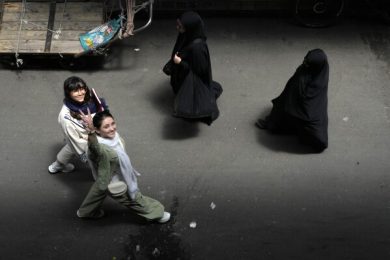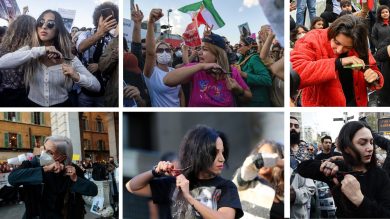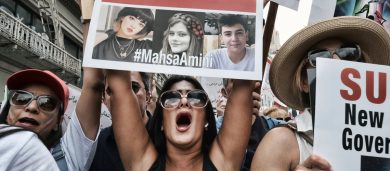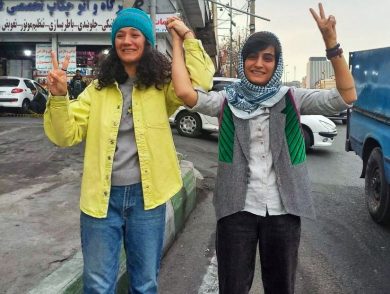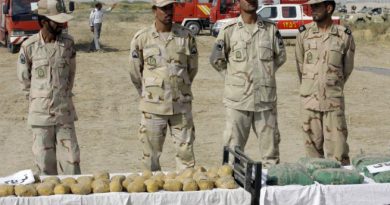The Islamic Revolutionary Guard Corps (IRGC) is not merely a military organization—it is the single most powerful institution in Iran. With its own armed forces, intelligence apparatus, economic empire, and ideological militia, the IRGC controls vast sectors of Iranian life. Its grip reaches into the courts, media, prisons, schools, and even private enterprise.
For decades, the Iranian people have lived under the shadow of this hybrid force: part army, part mafia, part theocratic enforcer.
But what would Iran look like without it?
This is not just a question of speculation—it’s a vision of liberation. As protest movements gain strength and international pressure builds, the dream of an Iran without the IRGC is transforming from fantasy to possibility.
This article explores that vision: what Iran could become if the IRGC were dismantled—how civilian rule could rise, human rights could be restored, and peace could be reimagined for a country long plagued by internal repression and external hostility.
1. The IRGC’s Grip on Iran: A Snapshot
Before imagining the alternative, we must understand what the IRGC currently controls.
Political:
• Unelected power backed by the Supreme Leader
• Intelligence services parallel to the Ministry of Intelligence
• Influence over parliament, judiciary, and even presidential vetting
Economic:
• Controls up to 30–40% of Iran’s GDP
• Manages hundreds of companies through Khatam al-Anbiya and front groups
• Dominates oil, construction, telecom, banking, and trade
Social:
• Controls state media and educational content
• Runs Basij militia in schools and neighborhoods
• Conducts internet surveillance and online censorship
Repressive:
• Operates prisons, torture centers, and black sites
• Enforces hijab laws and moral policing
• Leads violent crackdowns on protests
In essence, the IRGC blurs the line between state and shadow state—using both law and force to silence opposition.
2. Dismantling the IRGC: Is It Possible?
Yes—but it requires:
• Political will from inside and outside Iran
• Broad-based public support
• International legal and economic pressure
• Transitional justice mechanisms
• Security sector reform during a post-regime transformation
The process would be complex, but precedents exist. Countries like South Africa (post-apartheid), Chile (post-Pinochet), and post-Soviet Eastern Europe have successfully dismantled state terror systems.
3. Civilian Rule: A Return to Governance by the People
Without the IRGC:
• Elections would be genuine, without candidates being vetted for ideological loyalty
• The military would return to its constitutional role under a Ministry of Defense
• Intelligence services would be unified under civilian oversight
• Ministries would regain independence from ideological interference
Governance Would Shift Toward:
• Decentralization, allowing provinces like Kurdistan, Khuzestan, and Baluchestan more autonomy
• Professionalization, where appointments are made on merit—not Basij loyalty
• Accountability, with public access to government decisions and budgets
Civilian rule would enable Iran’s transition from militarized theocracy to constitutional democracy.
4. Human Rights Restored: From Fear to Freedom
The IRGC has institutionalized human rights abuses. Its dismantling would mark a watershed moment.
Key Changes:
• Immediate release of political prisoners
• Ban on torture, enforced disappearances, and forced confessions
• Abolition of gender apartheid laws and morality police
• Recognition of rights for women, LGBTQ+ individuals, ethnic and religious minorities
• Prosecution of those responsible for state violence, especially in 2009, 2017, 2019, and 2022 protests
Iran could finally comply with the Universal Declaration of Human Rights and International Covenant on Civil and Political Rights, both of which it has signed but routinely violates.
5. Media and Expression: Truth Without Fear
Currently, the IRGC censors media, runs propaganda outlets, and arrests journalists.
Without the IRGC:
• Independent press could flourish
• Internet access would be free and uncensored
• Artists, poets, filmmakers, and musicians would no longer be exiled or imprisoned
• Social media would become a space for organizing, not a surveillance tool
Truth-telling would no longer be a crime.
6. Economic Liberation: Breaking the Mafia State
The IRGC runs Iran’s biggest firms, rigs tenders, and uses black-market revenue to fund repression and foreign militias.
Economic Gains After IRGC Dismantling:
• Return of industries to civilian ministries and private sector
• Reopening of international trade under transparent conditions
• Attraction of foreign investment, especially in oil, technology, and renewable energy
• Job creation in real sectors, not ideological militarism
• Reduction in corruption, inflation, and currency volatility
The Iranian economy would shift from militarized kleptocracy to civilian productivity.
7. Women Leading the Way
The IRGC enforces the veil, arrests women for dancing or singing, and wages war on bodily autonomy.
In a Post-IRGC Iran:
• The hijab would be a personal choice, not a law
• Women could hold office, lead protests, and shape policy without fear
• Feminist organizations would flourish openly
• Survivors of gender-based violence—especially from IRGC detention—could seek justice
From Zahra Kazemi to Mahsa Amini, the women killed by state violence would finally be honored with institutional change.
8. Youth Without Chains: A New Generation Emerges
Iran is a young country, with over 60% of the population under 35. The IRGC sees youth as a threat—monitoring campuses, banning music, and policing behavior.
With the IRGC Gone:
• Students could organize unions and forums freely
• Young people could choose careers based on talent, not ideology
• Study abroad and tech exchange would become normalized
• National service would no longer involve forced ideological indoctrination in the Basij
This generation, born into fear, could finally live with hope.
9. Peace at Home and Abroad
The IRGC exports instability through Hezbollah, Houthis, and other militias. It has turned Iran into a pariah.
Without the IRGC:
• Iran could rebuild ties with neighbors through diplomacy, not proxy wars
• Support for militias would end, reducing regional sectarianism and violence
• Iranian embassies would become diplomatic posts, not intelligence outposts
• Relations with the West, Arab states, and even Israel could normalize
• Diaspora Iranians could return without fear of arrest
Iran’s reputation would shift from aggressor to reconciler.
10. Transitional Justice: Healing the Wounds
No transition can succeed without justice. A post-IRGC Iran must address decades of suffering.
Mechanisms Could Include:
• Truth commissions, modeled on South Africa’s post-apartheid process
• Trials of top commanders involved in mass killings and torture
• Reparations for victims and families
• Memorials and history education to ensure collective memory
Justice would not be revenge—it would be the foundation for trust, reconciliation, and non-recurrence.
11. Risks and Challenges
A transition without the IRGC would face hurdles:
• Power vacuums could lead to chaos if not managed carefully
• IRGC loyalists might attempt coups or insurgency
• Foreign actors could exploit instability
Mitigation:
• Establish transitional military councils under civilian oversight
• International support for security sector reform and election monitoring
• Clear timeline for democratic transition with grassroots inclusion
Hope must be matched with strategy.
12. The Role of the Diaspora and Global Community
The Iranian diaspora will be essential in this future:
• Providing legal, journalistic, and policy expertise
• Supporting civil society through funding and training
• Lobbying governments to maintain pressure on the regime.
Global institutions must also:
• Isolate IRGC leaders through sanctions
• Designate the IRGC as a terrorist group
• Support transitional mechanisms when the time comes
Conclusion: The Iran That Can Be
An Iran without the IRGC is not utopia. But it is possible. It is already visible in the courage of protesters, the voices of survivors, and the vision of exiles working for justice.
Join Our Newsletter!
Stay informed with the latest updates, news, and ways to take action in the fight for justice and global security. Sign up now to get updates delivered straight to your inbox!

